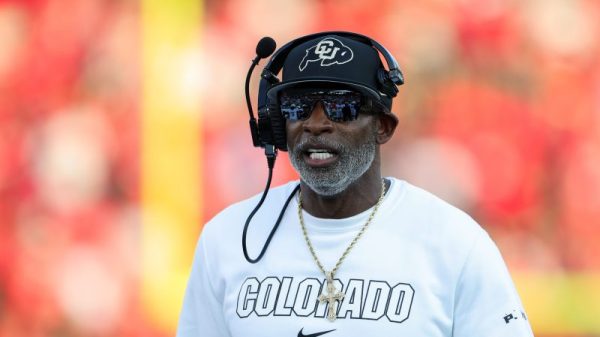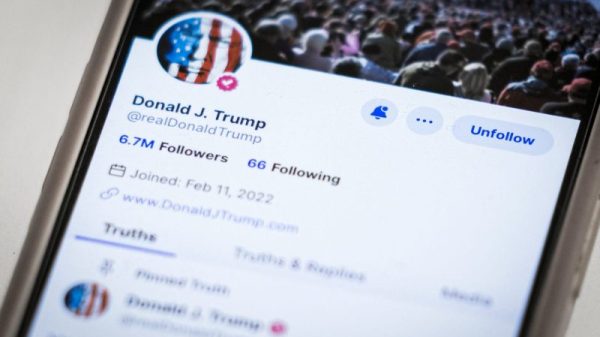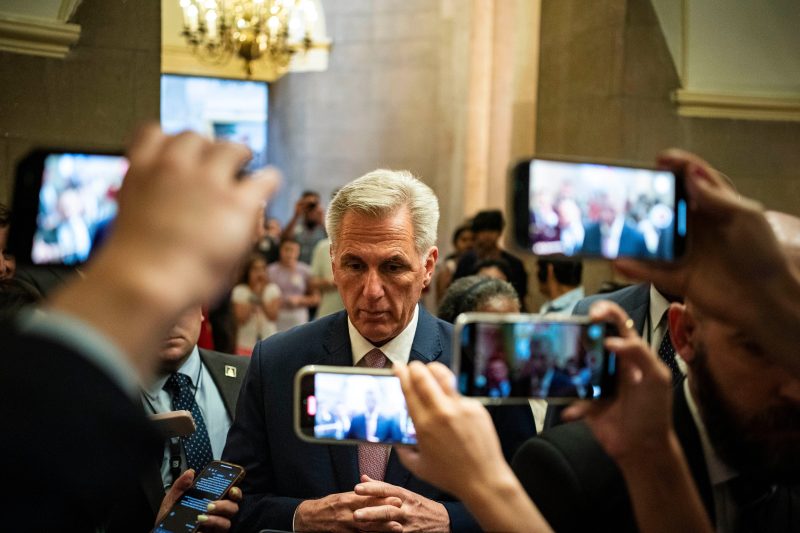Let’s begin with the rationale that House Speaker Kevin McCarthy (R-Calif.) offered on Tuesday for launching an impeachment investigation into President Biden.
Speaking to Fox Business Network host (and former Trump administration official) Larry Kudlow, McCarthy argued that such a probe might be warranted once Congress came back into session. (It is August, which Congress, like schoolchildren, gets off.)
“If the Biden administration continues to fight to withhold information that could really clear all this up — did they take bribes? Did they deal in the business? If they hold that up, we would have to move to an impeachment inquiry, which, you know, Larry, gives the apex of power to Congress when it comes to our subpoena power and others to get the documents we need: the bank statements, the credit card statements and others show us where the money went,” McCarthy said. “Show us, were you taking money from outside sources? And that would clear most of this up, but they seem to fight it every step of the way.”
“The whole determination here is how the Bidens handle this,” he added later. “If they provide us the documents, there wouldn’t be a need for [an] impeachment inquiry.”
Even if you aren’t familiar with the gauzy claims on which all of this sits, you can probably pick out a few problems with this argument.
One is that it conflates Joe-Biden-as-president (“the Biden administration”) with Joe-Biden-as-person-who-has-the-last-name-Biden (“the Bidens”). This has been common practice since even before Republicans regained control of the House in January. That Joe Biden’s son Hunter was involved in a sprawling and at times dubious set of business engagements, efforts that looped in his uncle Jim (and, it seems, other relatives) has allowed McCarthy and allies like House Oversight Chairman James Comer (R-Ky.) to refer to the actions of “the Biden family,” lumping the president into the mix through association.
Comer has tried to draw a line between Hunter Biden’s business and Joe Biden for months, without pause — or success. He has repeatedly presented allegations that incrementally expand the public’s awareness of how Hunter Biden’s engagements were structured and the partners who provided him funding or other assets. But he has also repeatedly been unable to show how these benefits were shared with the president.
He and his allies are left insinuating Biden’s involvement by noting, for example, that a former business partner said that Hunter Biden would occasionally put his father on speakerphone in front of clients — failing to admit that the same partner also testified under penalty of perjury that Joe Biden wasn’t involved in his son’s business.
This brings us to another problem with McCarthy’s argument: Under what conditions could this inquiry be avoided?
The speaker is explicitly arguing that there is no evidence to impeach Biden at this time; his push of an investigation is predicated on the idea that the evidence is being hidden. Never mind that, in October 2019, McCarthy criticized Speaker Nancy Pelosi (D-Calif.) for “the swiftness and recklessness” of her call for an inquiry following the emergence of evidence that Donald Trump had tried to pressure Ukrainian President Volodymyr Zelensky into aiding his reelection campaign. Here, McCarthy is setting an unattainable standard for the administration (or, alternatively, “the Bidens”): prove its innocence.
Any freshman-year philosophy student can identify the flaw here. Joe Biden could turn over years of bank records, submitting them to endless scrutiny (and, McCarthy no doubt hopes, turning up something tangentially problematic, in the manner of the Hillary Clinton email server). But McCarthy and his allies, including Comer, could simply insist that something was still missing, something unquestionably inculpating. And so the impeachment inquiry could move forward anyway, assuming the existence of incriminating documents and, therefore, a coverup.
Remember that there has already been a great deal of information turned over to Comer’s committee and other investigators. In fact, in a separate interview with Kudlow back in June, Comer boasted about his success in obtaining documents.
“Every subpoena that I’ve had as chairman of the House Oversight Committee over the last five months,” he said, “we’ve gotten 100 percent of what we requested, whether it’s with the FBI or with banks or with Treasury.”
By itself, this doesn’t comport with McCarthy’s presentation that the administration “seem[s] to fight it every step of the way.”
There’s another layer of haze that sits on top of all of this. Much of what’s under scrutiny is business activity that occurred when Joe Biden was a private citizen. Only a few elements of what’s been elevated by Comer’s work overlaps with Biden’s service as vice president. If Comer could show that Biden was paid for work led by his son in 2018, that would certainly be at odds with the president’s presentations. But would that arrangement, by itself, warrant impeachment? If so, how do Donald Trump’s extra-presidential business deals avoid the same fate?
What McCarthy and Comer point to (including, in McCarthy’s case, on Tuesday) is a secondhand bribery allegation first made public by Comer and Sen. Charles E. Grassley (R-Iowa) in early May. Since that time, no evidence has emerged to support the claim. So McCarthy makes mumbling comments about how there’s “a whistleblower — that the FBI still pays, that [the FBI] believes heavily in — way back years ago said that they are being bribed, the Biden family” — which is not true. The informant merely reported a conversation they’d had with a Ukrainian executive alleging a bribe, an allegation that the informant admitted they could not validate. (The executive, meanwhile, has at other times denied any interaction with Joe Biden at all.)
This is the standard McCarthy sets. Unless the Bidens can prove they weren’t bribed, or can prove that no money went to Joe Biden, or can prove that the U.S. attorney investigating Hunter Biden for tax evasion didn’t pull his punches — or can meet whatever other criteria McCarthy might set — there’s grounds for an investigation aimed at digging into the president broadly, into his family and his finances. There’s reason to hand over endless documents and information to sitting members of Congress, among whom are many who’ve already endorsed Biden’s most likely 2024 general election opponent, Donald Trump.
Since even before taking the majority earlier this year, the House Republican caucus has established itself as unusually eager to slap impeachments and censures on Biden and members of his administration. McCarthy’s embrace of an inquiry is unquestionably a response to pressure from his caucus. But one might hope that, if such an extraordinary step were to be taken, it would be conducted with an eye toward fairness, objectivity and impartiality.
That, at least, was the standard McCarthy demanded of Pelosi in 2019, in those words.



























